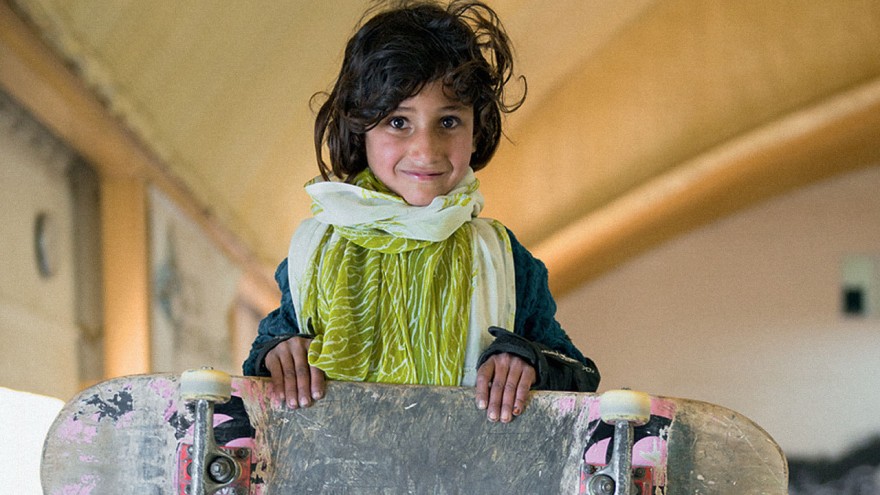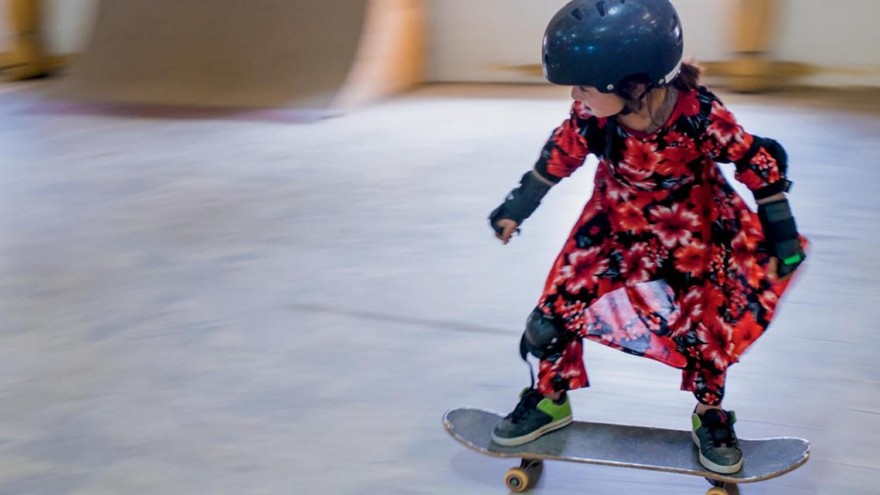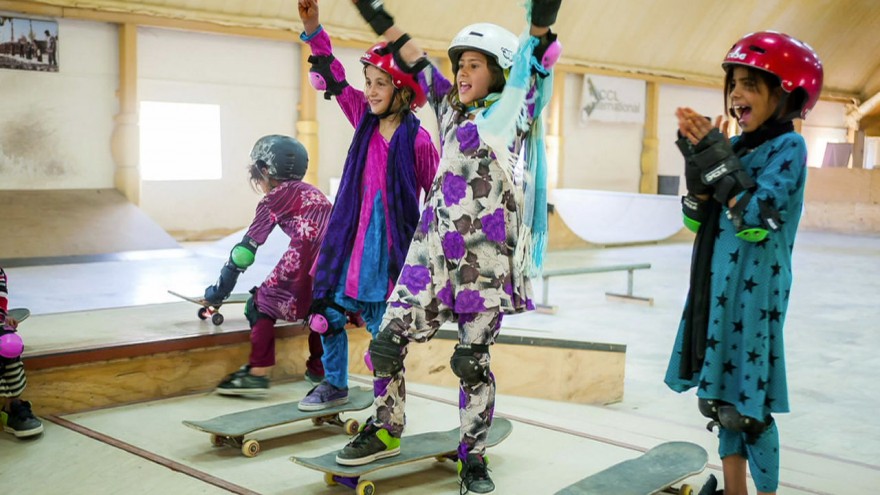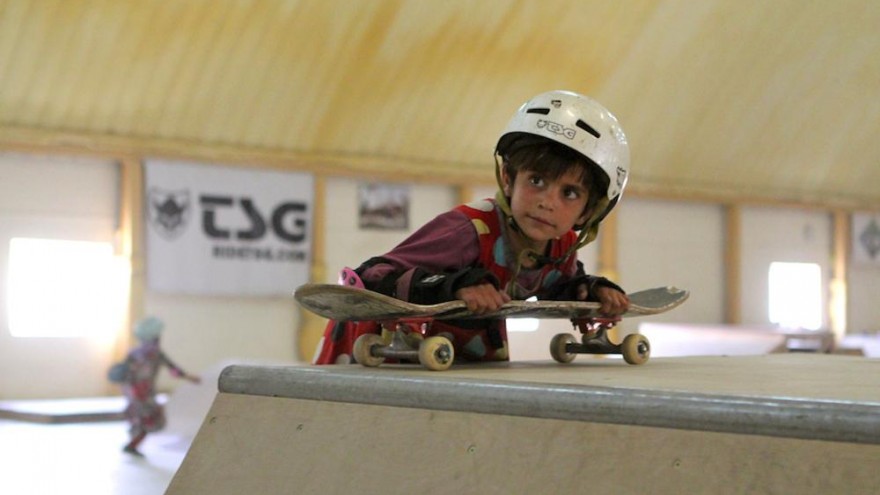The photographic book by British photographer Jessica Fulford-Dobson serves as a visual journal of her trip to Afghanistan in 2013, during which she took portraits of young members of Skateistan.
The inspiration for the photo series came as Fulford-Dobson was perusing her local newspaper in 2012. She came across a small article that covered young girls in Kabul who had taken to the sport of skateboarding. The image of a small Afghan girl hurtling forward on a skateboard piqued her interest. Feeling that the article did not explore the subject to her satisfaction, the freelance photographer decided to experience it first-hand, through the lens of her own camera.
The prevalence of Kabul’s young skateboarders is the outcome of Skateistan, an NGO project that was started in 2007 by Australian skateboarding enthusiast Oliver Percovich. It started as a small, grassroots initiative with Percovich instructing a handful of girls with skateboards (since it is considered taboo for girls to ride bicycles and illegal for women to drive cars). The group engages disadvantaged youths and anyone who wishes to participate. Currently, it sees upwards of 1200 members each week in Skateistan’s small skate park.
Fulford-Dobson decided to keep the tone of her portrait series quite straightforward and candid. She did not use additional light sources and travelled alone, wanting to retain an intimate and informal relationship with her subjects. Skateistan’s own skate park served as the backdrop of all Fulford-Dobson’s images. The photographs show young Afghan women riding and posing eagerly with their cherished skateboards.
Speaking to High Snobiety, the photographer remarks on the slant of optimism that the NGO provides to the image of Afghanistan, given the political unrest and climate of violence that the country has endured in recent years.
“I specialise in portraiture, particularly of children, and here was an opportunity to photograph young girls doing something exceptional in a beautiful, albeit war-torn, country. In addition, I hoped I could bring more publicity to a genuinely positive story about Afghanistan through my photographs, and therefore help generate more support for Skateistan, the charity that was giving these girls this amazing opportunity,” she says.
That Skateistan focusses on the male-dominated pastime of skateboarding and acts as a facilitator for girls in Kabul (who are subject to many restrictions) allows the sport to adopt a new meaning – one that supersedes a mere childhood hobby. The sport inspires a sense of pride and enthusiasm in its young members.
Skateboarding also allows girls to display their mettle and resilience, as it can be a rough-and-tumble sport. Fulford-Dobson describes the way the Afghan girls rebound from tripping or falling off their skateboards: “They hurl themselves forward with unstoppable courage, and if they take a tumble they bounce right up again, running back to the queue and cheering on their friends. It’s a brilliant way to illustrate the strength, enthusiasm and positivity of young women in Afghanistan.”
All Skateistan classes are unisex as opposed to the usual segregation of sexes in official Afghan settings. Girls who have been a part of Skateistan for a relatively long time are given the chance to instruct younger members on skateboarding techniques. The project embodies the notion of women helping women and has formed a community in its own right.
The Skate Girls of Kabul captures the exuberance that the girls show for Skateistan. Many of its members come from impoverished backgrounds and live through daily hardships, but they are invited to be carefree children for a few hours on the slopes of Skateistan.









